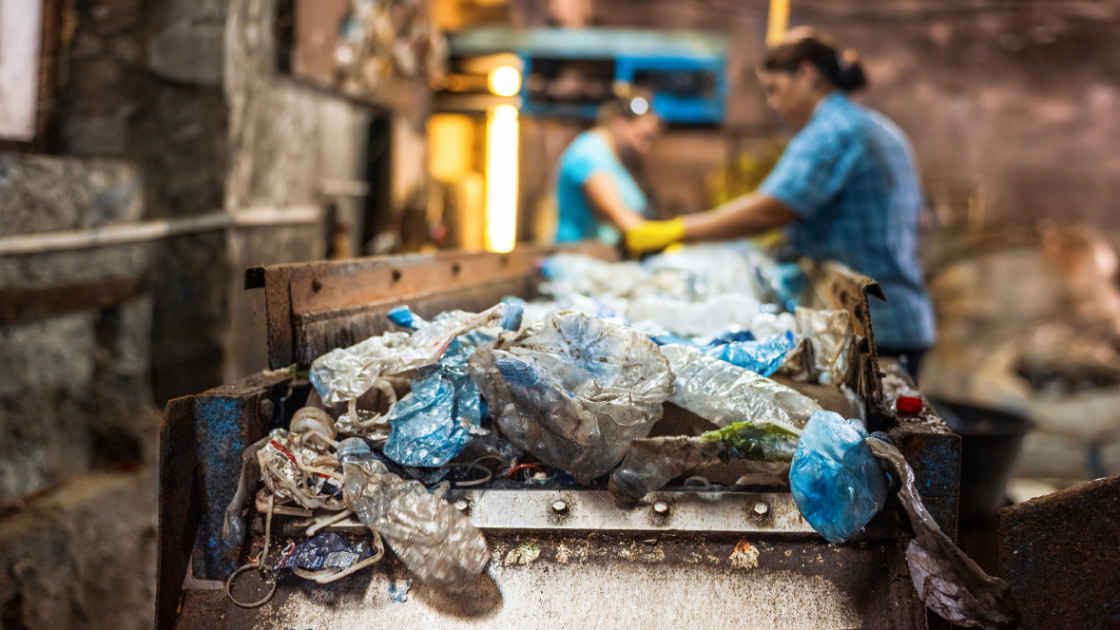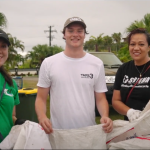Is recycling a myth?
Recycling was once held up as the answer to the plastic waste problem. We were promised that we could keep on using single-use plastics forever because they could be cheaply and easily recycled and turned into new plastic products. And for many years we believed this.
But a recent report, ‘The Fraud of Plastic Recycling’, issued by the Center for Climate Integrity (CCI), a fossil-fuel accountability advocacy group, has revealed this to be untrue. According to the report, plastic producers have known for more than 30 years that large scale recycling of plastic is not technically feasible, nor economically viable. Quite the opposite – plastic is difficult and expensive to recycle. There are thousands of chemically distinct types of plastic which cannot be recycled together, necessitating extensive, and prohibitively expensive, sorting. Furthermore, plastic degrades each time it is recycled, which means it can only be recycled once or twice before it becomes unusable, making it economically unattractive.

So why do we believe recycling to be the answer? The Guardian explains that when single-use plastics were first introduced on a large scale from the 1950s onwards, consumers were encouraged to throw them into the bin and hence onwards into landfill or incinerators. But by the 1980s local councils, looking for ways to mitigate waste, started exploring bans on certain single-use plastics. This threatened profits in the plastics industry so, in response, they started promoting plastics recycling, although they knew that this could never be a long-term solution. Damning evidence includes an internal 1986 report from a plastics trade association stating, “recycling cannot be considered a permanent solid waste solution [to plastics], as it merely prolongs the time until an item is disposed of”.
CCI accuses the plastics industry of violating public-nuisance, racketeering and consumer-fraud protections for promoting and encouraging plastic recycling in full knowledge that it wasn’t the solution to plastic waste they claimed it to be. Although no laws were broken, CCI believes the plastics industry should be held accountable for their role in helping create the environmental catastrophe of plastic pollution. But where does that leave the consumer – should we stop recycling?

Keep on recycling but reduce your plastic footprint too
Abandoning recycling altogether isn’t the solution. Despite its limitations, recycling still has an impact. According to the OECD, 9% of the world’s plastic is recycled—an incremental step towards sustainability. While the promise of recycling may have been exaggerated, it remains a crucial component of a broader strategy to combat plastic pollution. The key lies in reducing plastic consumption, which can be done by following the Four R’s:
The Four R’s
Refuse – avoid buying items wrapped in unnecessary single-use plastic; decline plastic bags; use keep cups and reusable water bottles; take cloth bags to the supermarket.
Reduce – if we all consumed less, there would be less waste in the world. Just buy less stuff. Think, ‘Do I really need this?’ before you buy anything. Your wallet will thank you, as will the planet.
Reuse – get the most out of your purchases and possessions. Think of creative ways to extend the lifespan of common items. Turn old t-shirts into cleaning cloths; use old food containers as plant pots; wash out plastic bags and use them repeatedly.
Recycle – no, it’s not the ideal solution but if all else fails, check the recycling rules where you live and follow them carefully.
By acknowledging the limitations of recycling and embracing proactive measures to reduce plastic consumption like the Four R’s, individuals can play a pivotal role in reducing the impact of plastic pollution on the planet.




